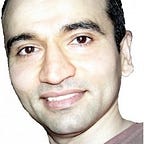The Illusion of the “Perfect” Definition: A Double-Edged Sword
Why Definitions Kill Innovations?
Have you ever been entranced by a work of art only to be jolted out of your awe by someone attempting to interpret its ‘meaning’?
Sometimes the magic lies in the mystery, the undefined spaces that leave room for imagination and personal resonance
The Trap of Absolutism
The opposite of a correct statement is a false statement. But the opposite of a profound truth may well be another profound truth
— Niels Bohr
In a world that’s perpetually in flux, the search for perfect, absolute definitions can lead to the stifling of perspectives and the suppression of diversity.
Imagine a society where the concept of “family” is defined solely as a unit consisting of a mother, a father, and children.
Such a definition, while neat and ‘perfect’ in its clarity, marginalizes various other familial arrangements such as single-parent families, childless couples, or LGBTQ+ families.
When ‘Perfect’ Becomes Harmful
Let’s delve into a real-world example: the definition of “beauty.”
The ‘perfect’ definition of beauty in various cultures has led to harmful practices like skin bleaching, unhealthy dieting, and a surge in cosmetic surgeries.
When a society collectively agrees upon a narrow concept of beauty, it sets an aspirational yet often unattainable standard.
This has a domino effect, leading to mental health issues like body dysmorphia and eating disorders.
Remember the surge of the “girlboss” era? For a time, the perfect definition of a successful woman was one who could “have it all” — career, family, and an Instagram-worthy life.
This over-glorified ideal contributed to burnout, stress, and set up an impossible yardstick against which women measured themselves.
The Gatekeeping of Knowledge
Do not wait to strike till the iron is hot; but make it hot by striking.
— William Butler Yeats
In the realm of academia and research, a stringent definition can hamper progress and innovation.
Take, for instance, the field of psychology. If we rigidly define intelligence by one’s ability to excel in logical-mathematical tasks, we potentially ignore various other forms of intelligence, such as emotional and social intelligence.
This kind of gatekeeping restricts the scope of research and can even impact educational systems, perpetuating inequality.
Rethinking Perfection: It’s a Journey, Not a Destination
The world breaks everyone, and afterward, some are strong at the broken places.
— Ernest Hemingway
A world without definitions would be chaotic, true, but a world where definitions are seen as irrefutably ‘perfect’ is equally dangerous.
It’s time we strike a balance and be vigilant about the hidden impacts of our words.
Isn’t it fascinating how we yearn for perfection yet thrive in imperfection?
Would you be willing to embrace the beautifully flawed nature of definitions, just as we do with humans, to pave the way for a more inclusive and empathetic world?
